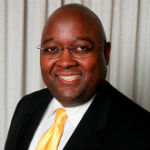Credit unions: The 7th estate
 Medieval castle town of Carcassone, France and the stone bridge
Medieval castle town of Carcassone, France and the stone bridge
Our federal government is comprised of three major divisions known as the executive, legislative, and judicial branches. The U.S. Constitution defines each branch’s duties and powers in Articles I – III of that revered document. Baked into these divisions of power are a system of checks and balances that keep our constitutional republic tethered and stable. Some historians view our tripartite government as the modern-day version of Europe’s “estates of the realm” that existed during the Middle Ages. In medieval France, three primary branches or estates of society were known as: the Church Clergy (first estate), the Nobility (second estate) and the Bourgeois/Peasants (third estate).
Unlike France’s feudal system of governance that ultimately led to the French Revolution, American society over time has developed additional substantive checks and balances that include the creation of a free press (fourth estate), a non-mainstream online media (fifth estate), and the everyday citizen blogger, observer, and critic (sixth estate). Emanating from the constitutional protections of the first amendment, these subsequent estates provide the necessary check to power both on government and even big media interests that have come to own much of the free press.
Credit unions have developed into a seventh and final estate and interestingly appear to be an amalgamation of the six other estates. Internally, every credit union mirrors the tripartite system of our federal and state governments’ checks and balances system via a chief executive (first estate – executive), board of directors (second estate – legislative), and a supervisory committee (third estate – judiciary). The CEO and his management team lead the various departments and operations of the institution to execute its mission for the benefit of the people – the members. The board of directors like legislatures enact by-laws and policies and provide general credit union oversight. Similar to our judiciary system, supervisory committees provide the necessary reviews of policies and procedures ensuring compliance with laws and regulations. When these three divisions work effectively, unchecked power that can breed fraud and corruption is kept to a minimum.
Externally, as the free press or fourth estate helps to ensure honest government, in like manner, credit unions also preserve fair lending and sound banking practices in the marketplace. Credit unions educate their members as well as the general public through financial literacy initiatives. They are active in schools deploying student run branches, providing homeownership seminars, and offering free to low cost debt counseling services. In addition, credit unions are the non-mainstream banking alternative to traditional banks similar to the fifth estate of non-mainstream online media alternatives. This banking alternative allows the public to have choices where they conduct their financial transactions. Credit unions also possess a sixth estate component because they are member-owned by everyday citizens. This ensures Main Street has the necessary access to credit that fosters freedom from financial dependency on the government and predatory lending by corporate interests.
As the seventh estate, credit unions are the ultimate financial check and balance against risky investments and bank failures. They are the backstop to financial chaos and systemic meltdowns. Credit unions are not the Church, but they can be faith-based. They are not comprised of nobility, but the philosophy of people helping people is a noble cause. Members are not peasants or the bourgeois in the classic sense, but they are ordinary member-owners that teach in our schools, police our neighborhoods, extinguish fires, work in our government agencies, clean our streets, and deliver our mail. Credit unions are not for profit, not for charity, but for service and are indeed the seventh estate of American society.

